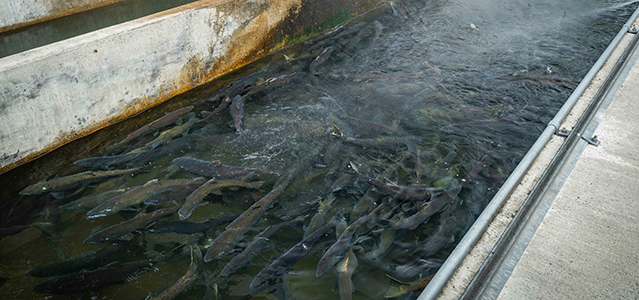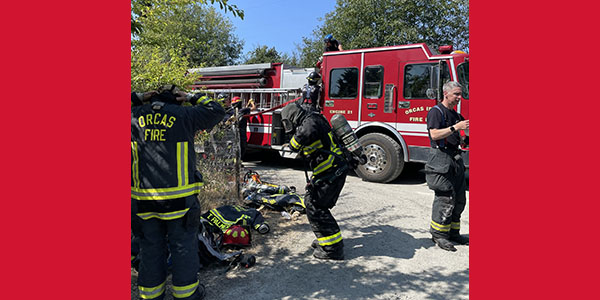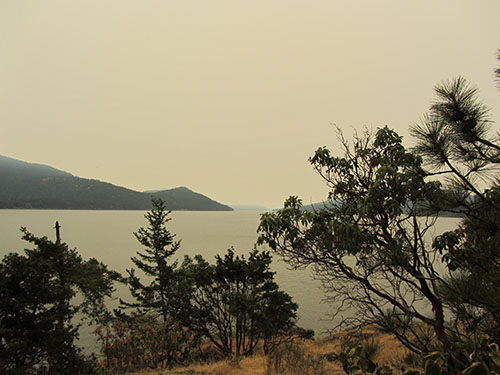||| FROM EMMA HELVERSON for WILD FISH CONSERVANCY |||
Wild Fish Conservancy and The Conservation Angler filed suit against federal, state, and local governments under the Endangered Species Act (ESA) to protect threatened wild fish and their ecosystems from hatchery programs in the Columbia River below Bonneville dam. These parties continue to fund and operate hatcheries under the Mitchell Act and Select Area Fishery Enhancement (SAFE) programs while exceeding limits under the ESA designed to prevent extinction of imperiled wild salmon and steelhead.
The complaint filed today in Washington’s Western District Court details how hatchery management under these programs is negatively impacting threatened and endangered Chinook, coho, and chum salmon, as well as steelhead, and Southern
Resident killer whales whose survival depends on the protection and long-term recovery of wild salmon populations. Harm to ESA-listed species and their critical habitats occurs through a variety of ways, including genetic and ecological interactions, harvest impacts, facility effects, fish removal activities, and others.
Congress enacted the Mitchell Act in 1938, in an attempt to counteract the adverse effects of habitat degradation, dam building, and overharvest in the Columbia River Basin. The SAFE program was developed in 1993 to provide salmon and steelhead for dwindling in-river fisheries. As wild populations continue to decline across the Pacific coast, production under the Mitchell Act and SAFE program is used as justification by fisheries managers to avoid curtailing unsustainable harvest levels in ocean fisheries from Oregon to Alaska. Today, NMFS, both the funder and the regulatory agency of these programs, recognizes hatcheries and harvest as two of the leading threats to wild salmon and steelhead.
In 2016, Wild Fish Conservancy sued the National Marine Fisheries Service (NMFS) over these same hatchery programs to force them to comply with the ESA when funding and authorizing Mitchell Act hatcheries. As a result of that successful litigation, NMFS developed a Biological Opinion on Mitchell Act hatcheries that set limits and standards to prevent the extinction of already at-risk wild salmon and steelhead.
Today’s complaint details NMFS’s consistent failure to comply with critical terms and conditions of their biological opinions for both the Mitchell Act and SAFE hatchery programs in tributaries throughout the lower Columbia River in Washington and Oregon. Most concerning, these hatchery programs are seriously exceeding federally mandated limits for the number of hatchery fish reaching wild spawning grounds and breeding with wild salmon. The complaint also challenges the agency’s present approach of utilizing weirs, which have demonstrated ineffectiveness at reducing the proportion of hatchery fish and which obstruct the migration of wild salmon, further undermining recovery.
In addition to NMFS, the complaint details that local and state agencies who operate these facilities in Oregon and Washington are also failing to comply with requirements set to protect ESA-listed species under the Mitchell Act and SAFE program Biological Opinions.
“Just like targets set for fighting climate change, the standards of the Endangered Species Act are not just lofty goals, they’re crucial limits that can’t be crossed without causing serious damage,” says Emma Helverson, Executive Director of Wild Fish Conservancy. “It’s disheartening that our government has consistently failed to meet their own standards and seem content with causing the decline of wild salmon and steelhead in the Columbia Basin. Despite our best efforts to collaborate to implement known solutions, it is clear that legal action is the only option to hold these agencies responsible for addressing the ongoing harm caused by hatcheries.”
In recent years, Mitchell Act funding has ranged between $15,000,000 and $22,000,000 annually, supporting roughly one-third of all hatchery production in the Columbia River. A 2023 study evaluated the impact of the federal government’s total $9 billion-dollar investment in hatchery production and restoration spending in the Columbia River over the past forty years. Despite the massive scale of this expense, the study results showed no evidence of increased abundance of wild salmon or steelhead in the Columbia River Basin.
“The failure of Columbia River hatcheries should come as no surprise. The region’s independent scientific experts have determined that massive hatchery releases are likely preventing the recovery of the basin’s salmon and steelhead through competition for limited food and space and genetic impacts to wild fish.” said Nick Gayeski, Senior Aquatic Ecologist with the Wild Fish Conservancy.
“The ESA is the nation’s most important tool to protect biodiversity, and Congress provided a means under the ESA for the public to hold entities accountable for violating the Act. The data clearly shows that the Mitchell Act and SAFE hatchery programs are failing to comply with requirements to prevent the extinction of ESA-listed steelhead, chinook, coho, and chum salmon and Southern Resident Killer Whales. We are filing this complaint to hold the agencies accountable for these failures and to ensure that these species receive the ESA protections that they are afforded by law,” said David Moskowitz, Executive Director for The Conservation Angler.
Federal agencies are obligated under the ESA to “insure that any action authorized, funded, or carried out by such agency… is not likely to jeopardize the continued existence of any endangered or threatened species or result in the destruction or adverse modification of habitat that has been designated as critical for such species. NMFS has already sent the parties that receive funds through the Mitchell Act a notice that they are re-initiating consultation on Biological Opinion. During that time NMFS should not be distributing funds to the hatchery operators until they can come up with a plan to adequately protect wild fish.
The Conservation Angler and Wild Fish Conservancy have consistently advocated for precautionary, science-based fisheries management, government accountability, and hatchery reform.
- The groups are represented by Kampmeier & Knutsen, PLLC of Portland, OR and Seattle, WA, and Rob Kirschner of The Conservation Angler kampmeierknutsen.com
- Wild Fish Conservancy is a nonprofit conservation organization headquartered in Washington State and working from
California to Alaska to preserve, protect and restore the northwest’s wild fish and the ecosystems they depend on, through science, education, and advocacy. wildfishconservancy.org - The Conservation Angler fights for the protection of wild Pacific anadromous fish populations and their watersheds throughout the Pacific Northwest and Russia’s Kamchatka Peninsula. theconservationangler.org







